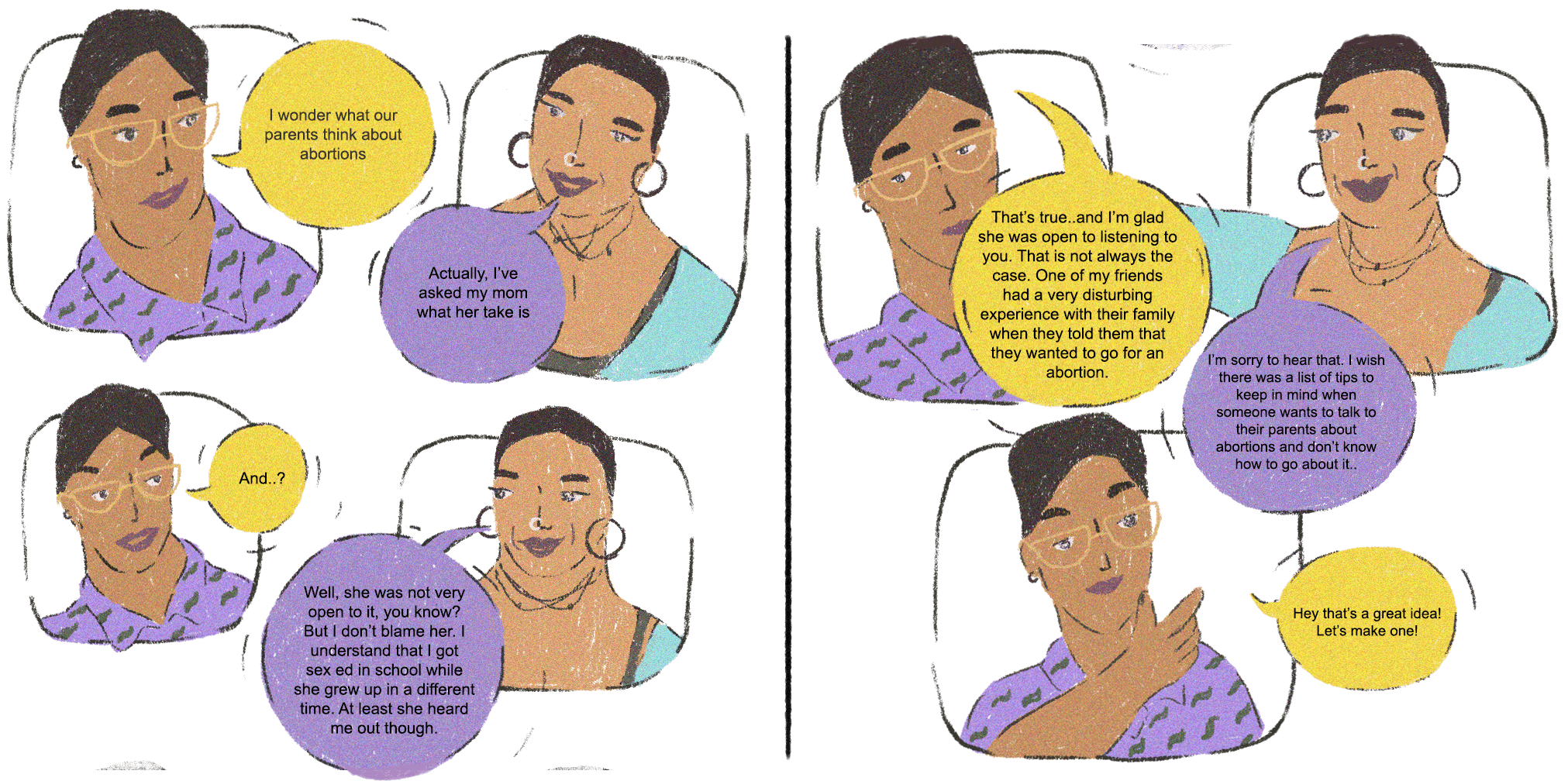- How to talk to parents about abortion?
- Abortion education in schools
- Let’s bust some myths about abortion
- Let’s bust some myths about contraceptives
- Does stigma affect abortion accessibility and services?

Let us begin with two very important facts to note:
One, parental or a guardian’s consent in needed for an abortion for people below the age of 18. Please find out more information here.
And two, you need to consider your safety first. If you are seeking an abortion and feel that telling your parents or immediate family could result in any kind of abuse or danger, please stop. There are various channels that could help you with the procedure, such as trusted local NGO’s, clinics, helplines, etc.
Now that the disclaimers are out of the way, let’s think about ways that you could approach your parents for a conversation on abortions.
1. No need to feel shame:
This is the first and foremost. Please know that getting an abortion is not a matter of shame at all. In fact, revel in the fact that you decided to save a potential life that would have been unwanted.
2. Arm yourself with numbers and data:
For many of our parents, abortion is amoral and probably a cruel procedure. Work with information in that case. Talk about how many individuals seeking abortions go through botched procedures and end up in unhealthy conditions. Talk about how many unintended pregnancies occur annually. Talk about safe abortions and why they are important and healthy. It may be helpful to keep in mind that
- No contraceptive is 100% effective. Your parents might not know this for sure. Tell them about it and what the implications of this could be.
- For a lot of people facing unintended pregnancy, going for an abortion is better than going ahead with the pregnancy because an unwanted child could result in various mental health problems.
- Abortions are not uncommon in India. A study estimates that 15.6 million abortions took place in India in 2015 alone. 3.4 million of these took place in health facilities, 11.5 million were done through medical methods outside facilities, and the rest are expected to have been done through other methods.
3. Bring your myth busting material along with you:
Unfortunately, India is not a country that places a lot of value on comprehensive sexuality education. This has resulted in various myths and misconceptions around abortions. It may be possible that our own parents cater to misconceptions because they too do not have enough information. Bring your own research along with you. Safe abortion procedures do not affect future pregnancies. Unmarried women can certainly get an abortion legally in India. Abortions do not cause breast cancer. Find out more here.
4. Remember that your parents care for you:
For many of us, it is fear that stops us from talking to our parents. We may feel like we have disappointed them or let them down or we may feel that their reaction could physically or mentally harm us. If it is the latter, please seek help externally. However, if it is the former, please remember that most parents want what is best for their child and will eventually understand your decision. They may be hurt or disappointed. Give them some time to process the information internally and be open to answering all their questions and concerns honestly.
5. Bring another adult into the picture:
Sometimes, it is difficult for our parents to take us seriously, especially if we are not adults yet. It may help to bring along another adult (to speak on your behalf) into the picture who is seen as trustworthy by your parents. They might be more open to listen to what you have to say in their presence.
6. Try vulnerability:
It might help to show your vulnerability to your parents. Begin with the fact that you have something to tell them but you fear that it may upset or disappoint them. It may help them to have an open mind if they see you concerned about their disappointment/reaction.
7. No one can force you:
Before, during and after you talk to your parents, always keep in mind that nobody can force you to make a particular decision. This is a decision about your body and despite having different opinions around you, only your opinion matters at the end of the day.
